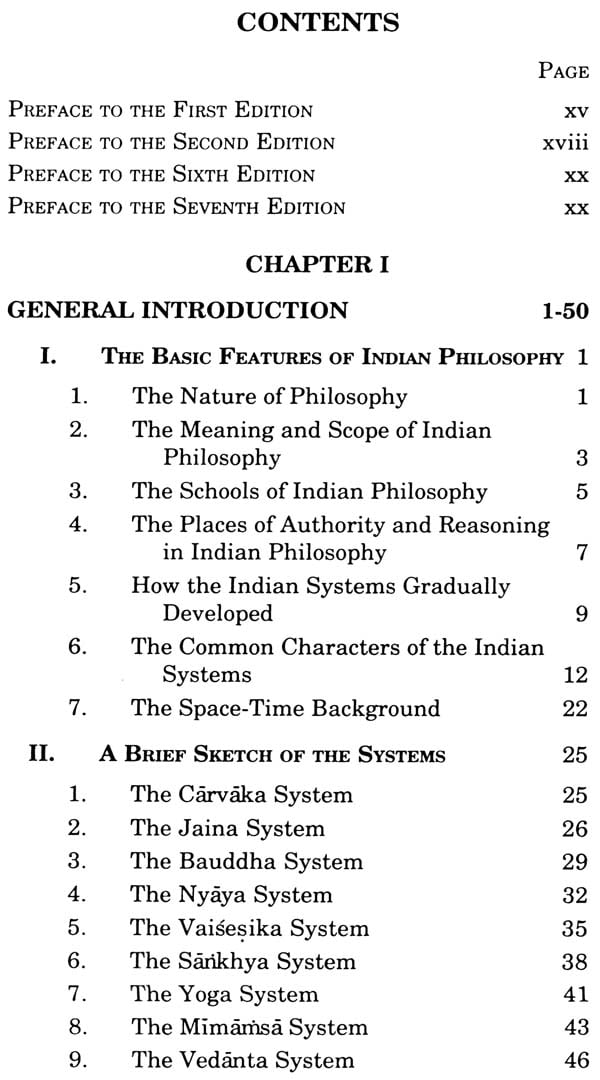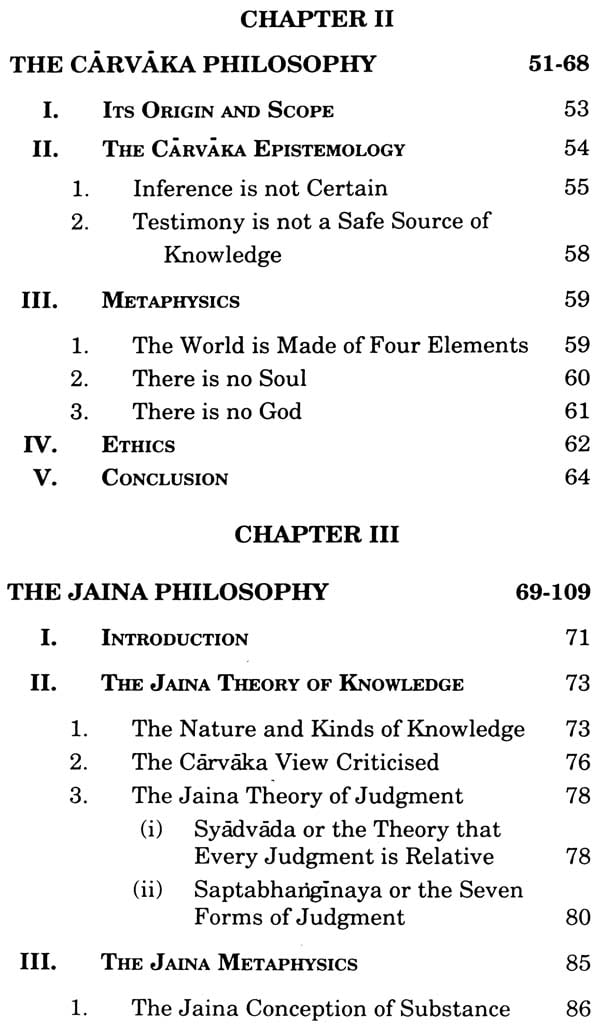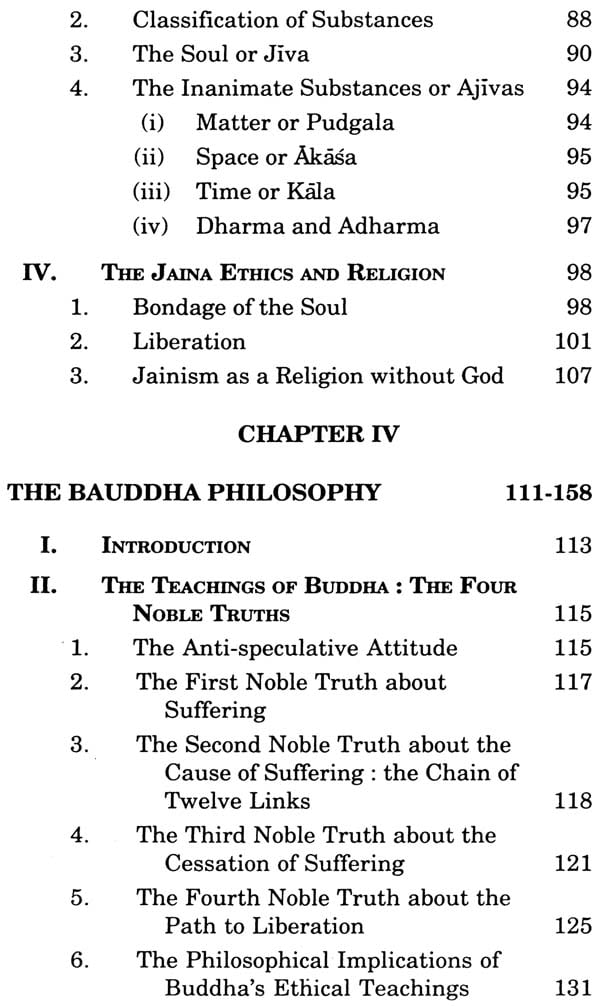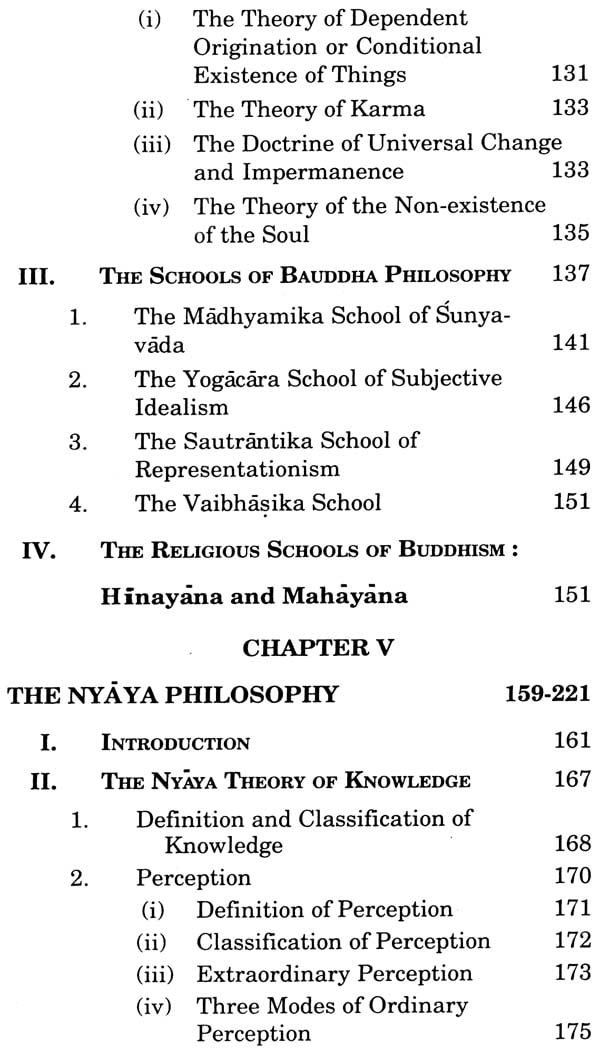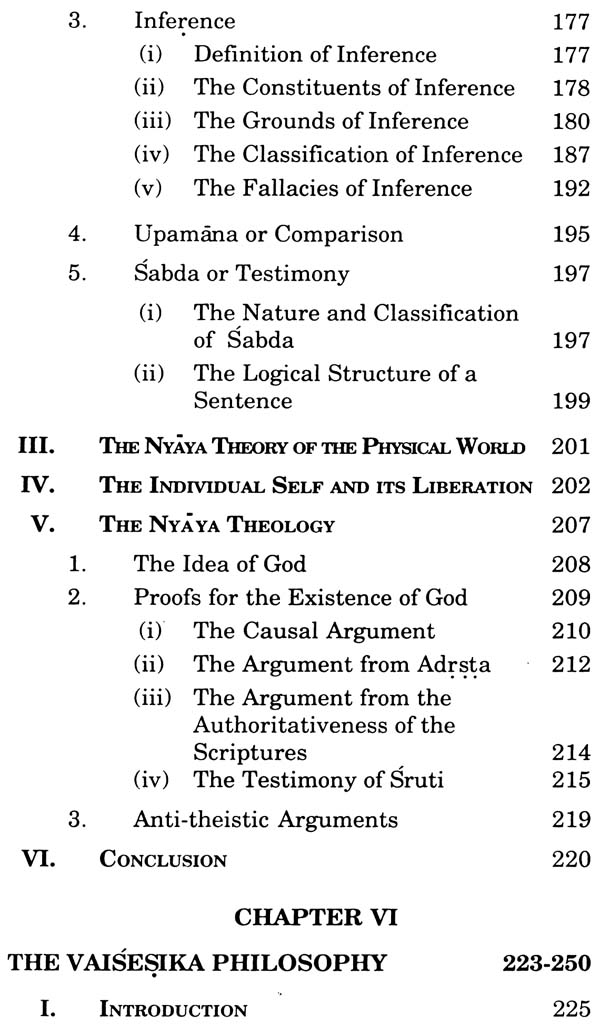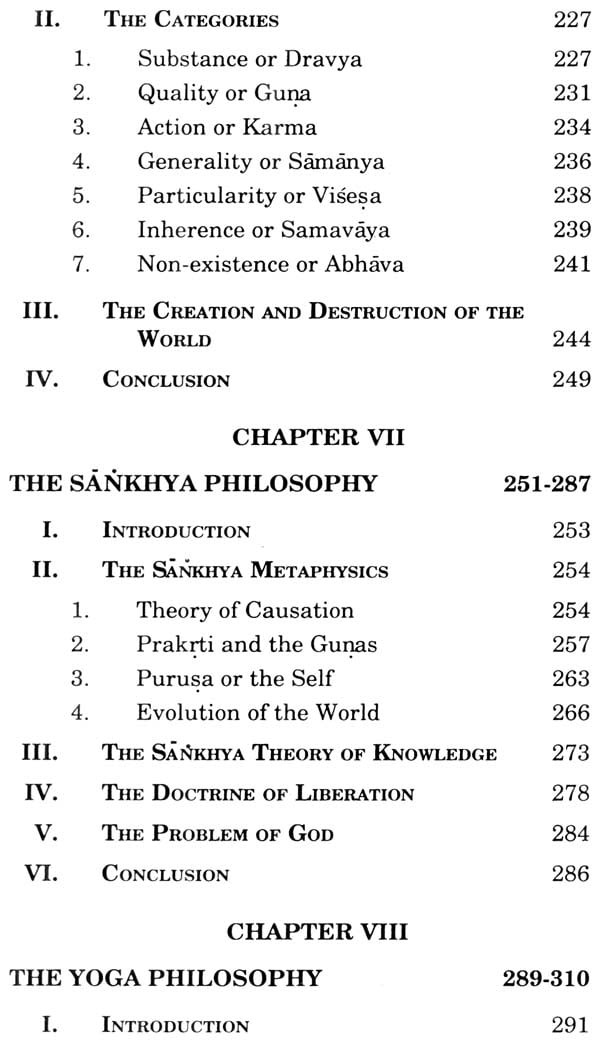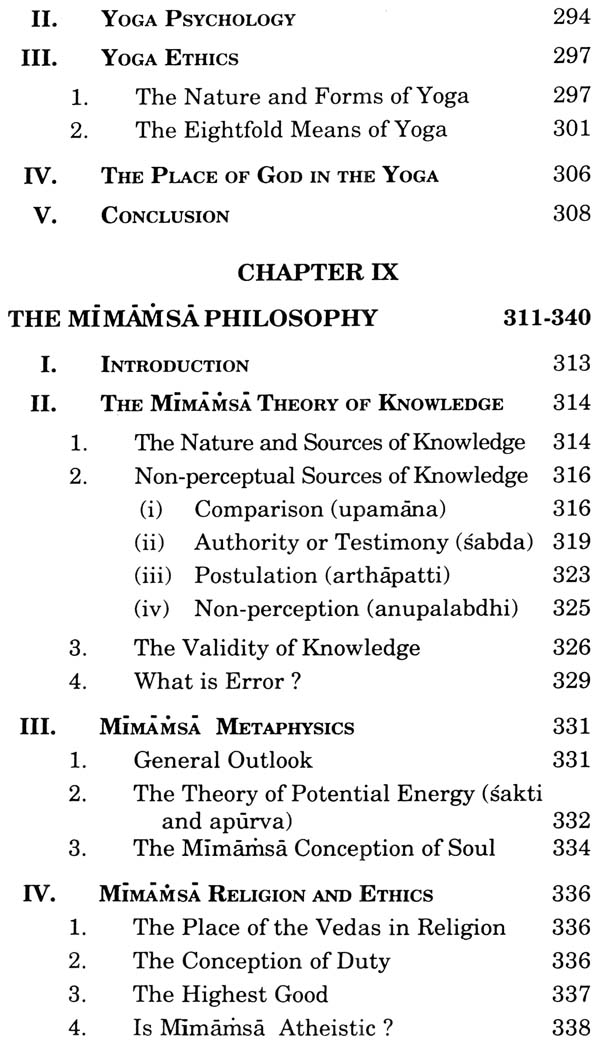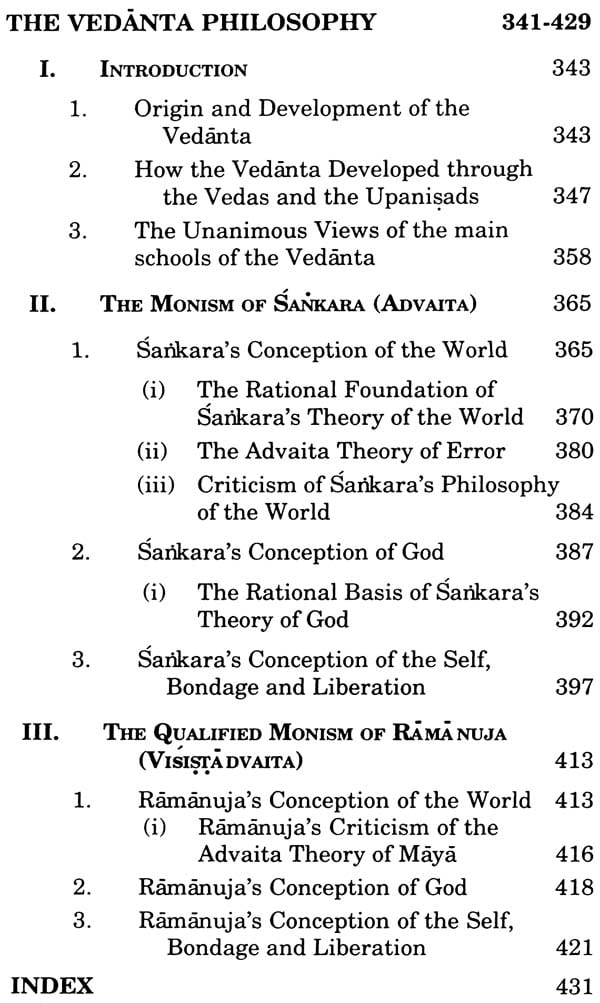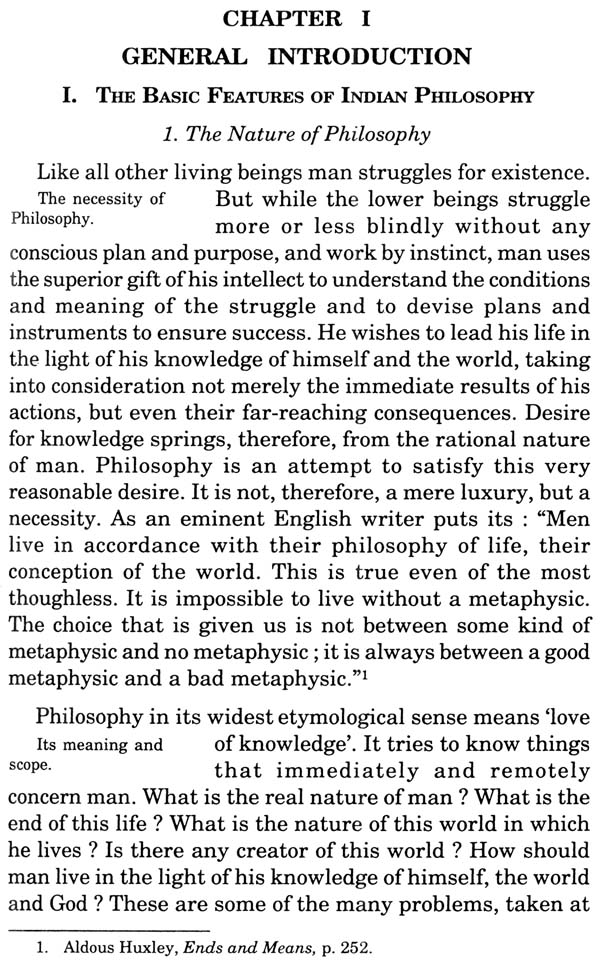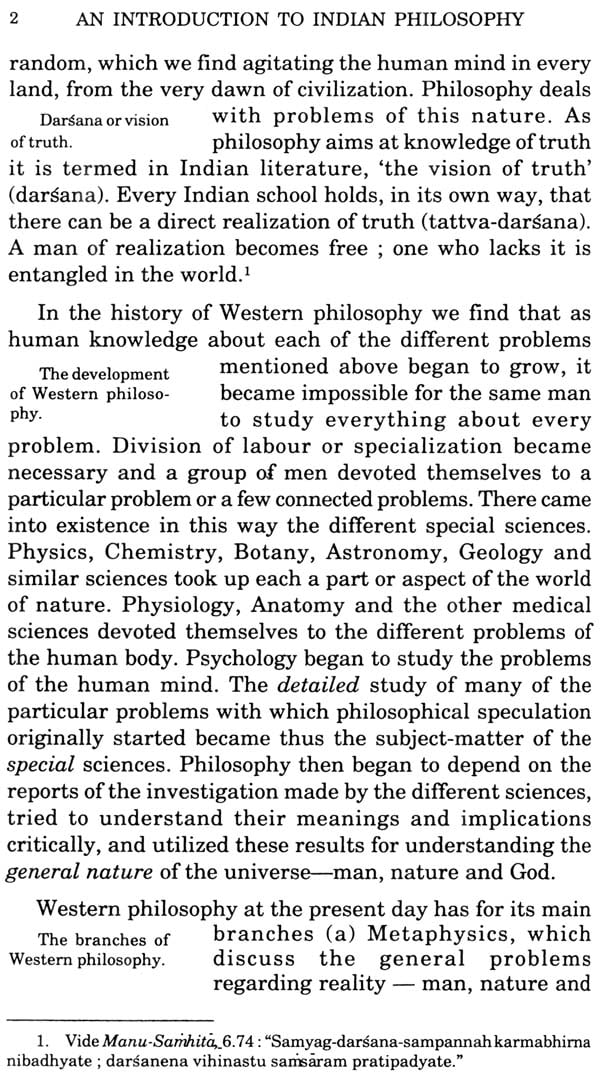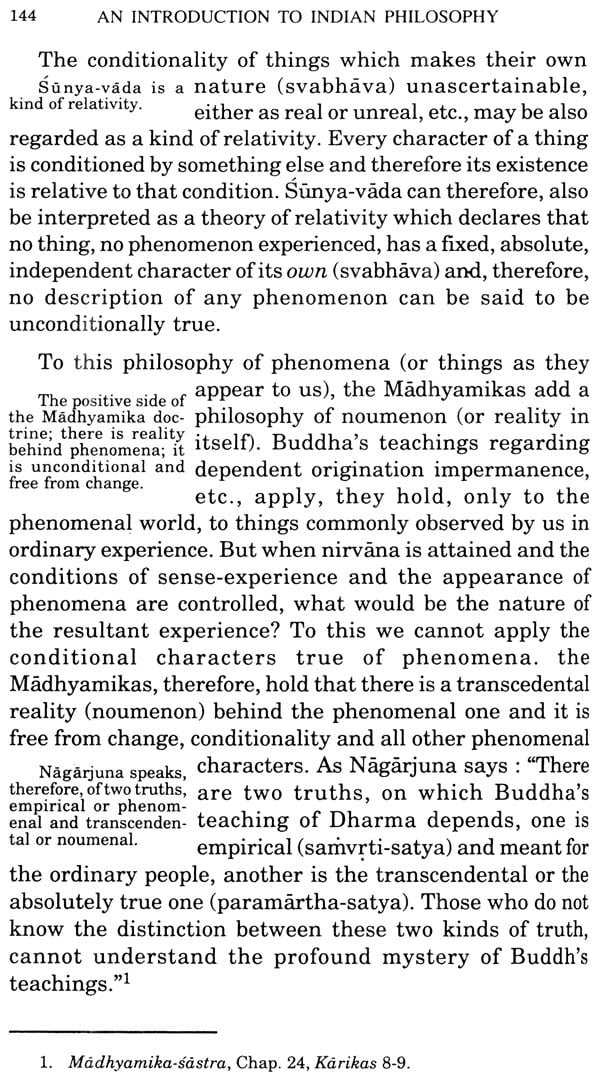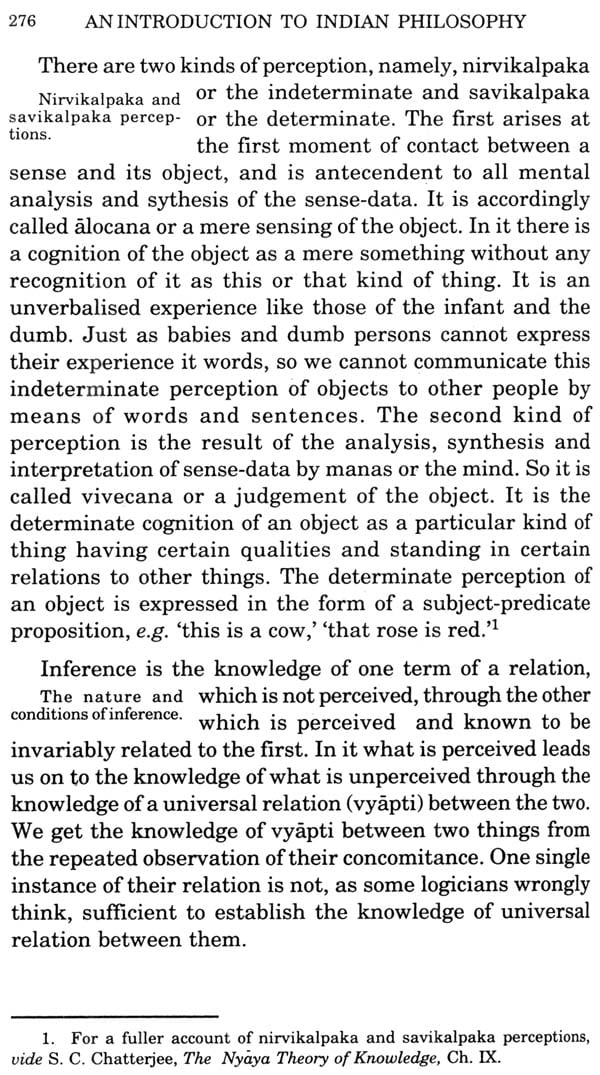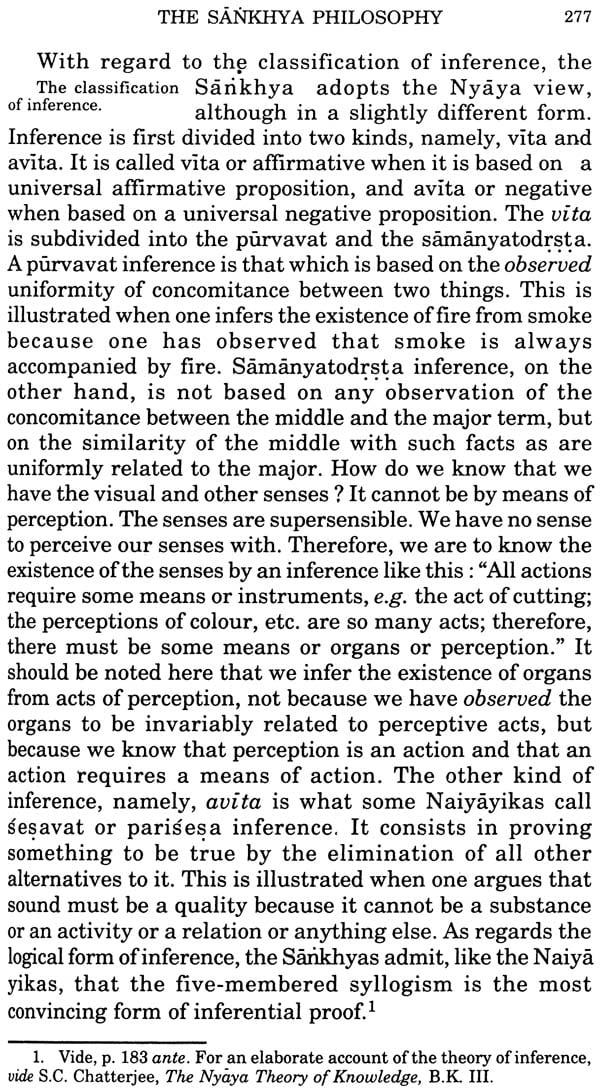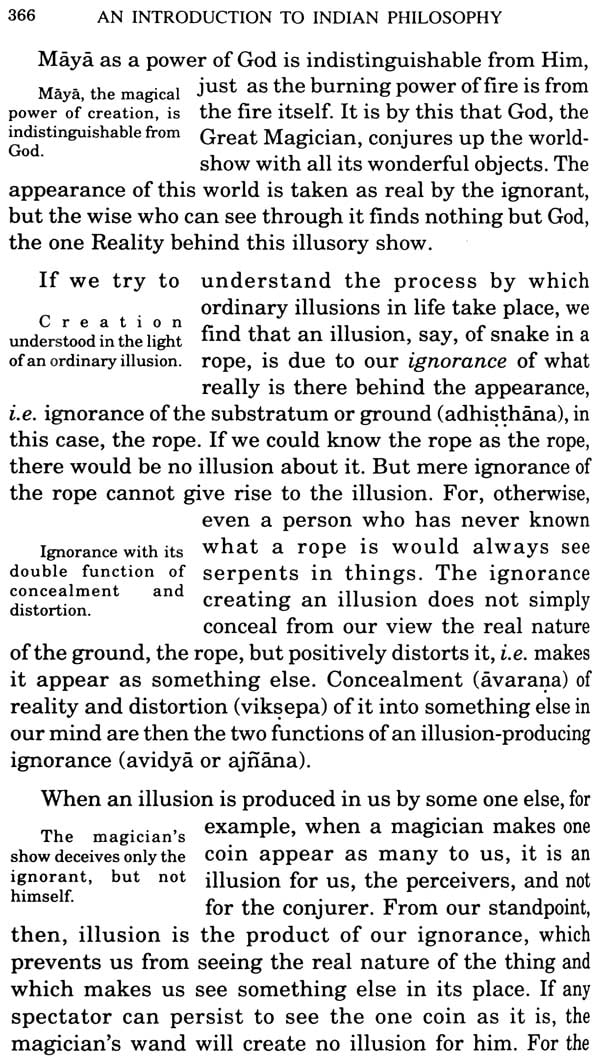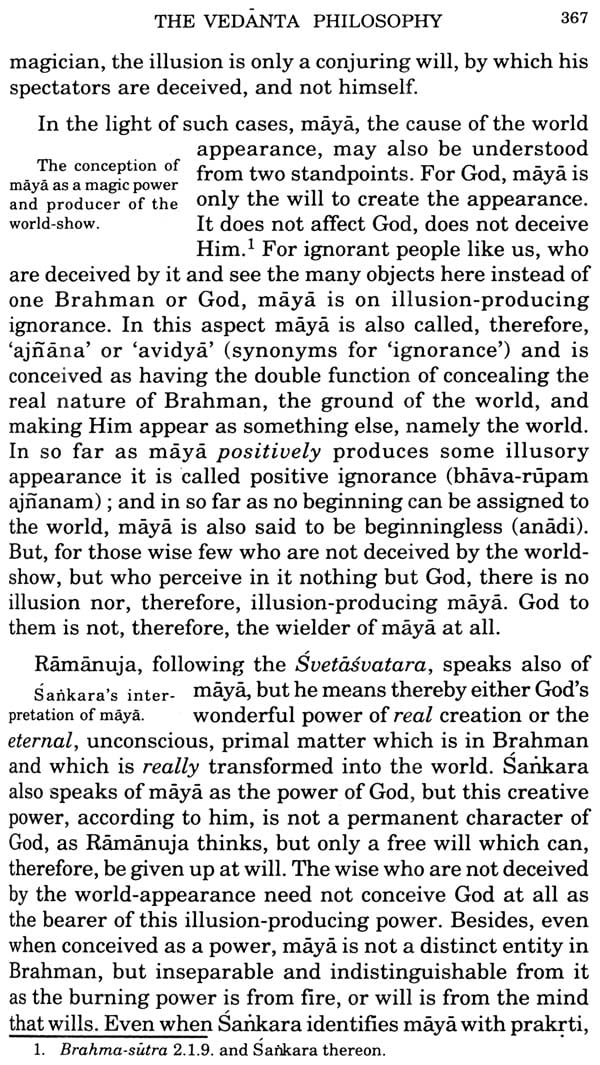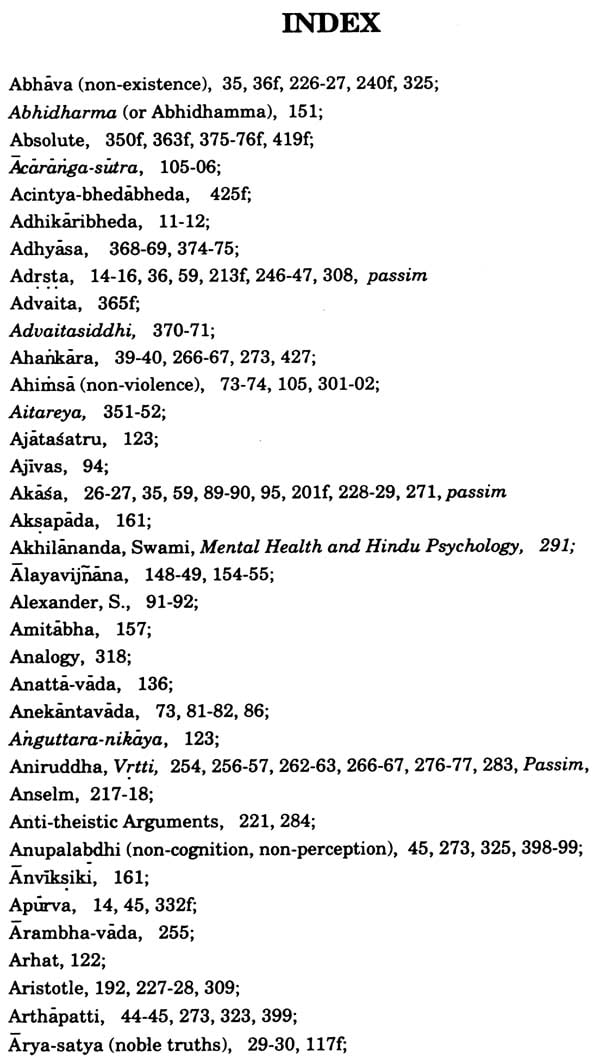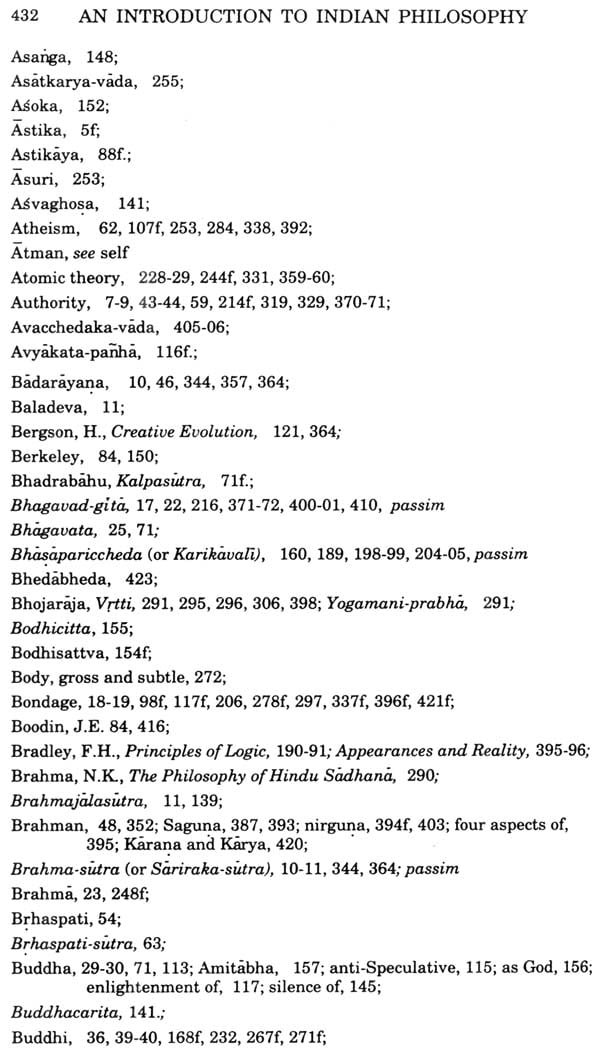
An Introduction to Indian Philosophy
Book Specification
| Item Code: | NAQ759 |
| Author: | Satischandra Chatterjee, Dhirendramohan Datta |
| Publisher: | Motilal Banarsidass Publishers Pvt. Ltd. |
| Language: | English |
| Edition: | 2016 |
| ISBN: | 9788120840171 |
| Pages: | 464 |
| Cover: | PAPERBACK |
| Other Details | 8.50 X 5.00 inch |
| Weight | 500 gm |
Book Description
The object of this book is to provide a simple introduction to the Indian systems of philosophy. Each one of these systems has a vast and varied development and cannot be treated adequately in a brief work like this. Attempt has been made to introduce the reader to the spirit and outlook of Indian philosophy and help him to grasp thoroughly the central ideas rather than acquaint him with minute details. Modern students of philosophy feel many difficulties in understanding the Indian problems and theories. Their long experience with university students has helped the authors to realise these, and they have tried to remove them as far as possible. This account for most of the critical discussions which could otherwise have been dispensed with.
The book has been primarily written for beginners. The first chapter which contains the general principles and basic features of Indian philosophy, as well as a brief sketch of each system, gives the student a bird's-eye view of the entire field and prepares him for a more intensive study of the systems which are contained in the following chapters. It is hoped, therefore, that the book will suit the needs of university students at different stages, as well as of general readers interested in Indian philosophy.
SATISCHANDRA CHATTERJEE, M.A., Ph.D., Formerly Head of the Department of Philosophy in Calcutta University DHERENDRAMOHAN DATTA, M.A., Ph.D., Formerly Professor of Philosophy, Patna College in Patna University Government of India conferred on him Padma Bhushan for his services rendered in the field of Indian Philosophy.
The object of this book is to provide a simple introduction to the Indian systems of philosophy. Each one of these systems has had a vast and varied development and cannot be treated adequately in a brief work like this. Attempt has been made to introduce the reader to the spirit and outlook of Indian philosophy and help him to grasp thoroughly the central ideas rather than acquaint him with minute details. Modern students of philosophy feel many difficulties in understanding the Indian problems and theories. Their long experience with university students has helped the authors to realise these, and they have tried to remove them as far as possible. This accounts for most of the critical discussions which could otherwise have been dispensed with.
The book has been primarily written for beginners. The first chapter which contains the general principles and basic features of Indian philosophy, as well as a brief sketch of each system, gives the student a bird's-eye view of the entire field and prepares him for a more intensive study of the systems which are contained in the following chapters. It is hoped, therefore, that the book will suit the needs of university students at different stages, as well as of general readers interested in Indian philosophy. It will serve the needs of B.A. Pass students who may be required to have a brief general acquaintance with Indian philosophy as a whole, as well as those of Honours students who may be expected to have a more detailed knowledge of one or more systems.
It is the firm conviction of the writers that Reality is many-sided and Truth is manifold; that each system approaches Reality from one point of view or level of experience, and embodies one aspect of Truth. They have tried to approach each system with sympathy and justify it, rather than dismiss it with a customary criticism. They believe that a sympathetic insight into the great systems will enable the student to grasp their truths more easily and give him a sound philosophical outlook.
While an attempt has been made to bring out the significance of Indian views in terms of modern Western thought, care has always been exercised to preserve their distinctive marks, such as their spiritual and practical outlook, their recognition of the different levels of experience.
**Contents and Sample Pages**
